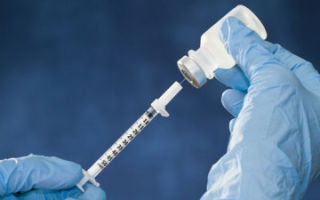One of the most disturbing questions for patients is whether there can be an allergy to anesthesia? During emergency operations, all risks are rational, but what about those who want to resort to aesthetic surgery? Anesthesiologists assure that an allergy to general anesthesia is extremely rare, but you can prepare for this. We tell you how to find out if you are allergic to anesthesia and how to protect yourself before surgical correction.
Types of anesthesia
To understand what to do if there is an allergy to anesthesia, it is important to understand the types of methods and systems used. There are a great many types of anesthesia, but all of them can be divided into two categories: regional and general combined anesthesia.
A day of small corrections is often enough intravenous anesthesia, in which the patient breathes on his own. But in plastic surgery , where most operations are voluminous, endotracheal anesthesia is most often used - the body is so relaxed with muscle relaxants that the respiratory function is performed by the apparatus (a tube is inserted into the airways that supplies air, oxygen and anesthetics, and gas exchange is supported by a ventilator). Despite the complex description, intubation anesthesia is absolutely safe in the hands of experienced anesthesiologists and even more preferable for the patient - complete relaxation of the muscles guarantees the absence of any sensations for the patient, and the surgeon allows the operation to be performed with maximum precision.
Is there an allergy to anesthesia with local anesthesia? Regional anesthesia (local) is also divided into several types: infiltration, conduction and neuraxial. These groups include both dental anesthesia (infiltration anesthesia) and epidural anesthesia (neuroaxial). In any case, this allows you to "turn off" a specific area of the body, while maintaining respiratory functions and consciousness.
Anesthesiologist-resuscitator of the " Hospital of the World " Terentiev Denis Aleksandrovich:
“We have a golden rule: the patient should not be present at his operation. Therefore, even when using regional anesthesia, we relax or put the patient to sleep by sedation. For example, during a blepharoplasty, the patient is fully awake to interact with the surgeon, but completely calm and relaxed due to the sedatives.”
Sedation is a mild medical sleep or (in a smaller dosage) psychological relaxation - it has nothing to do with anesthesia, does not affect the muscles and does not harm the body. It is under sedation that gastroscopy and similar examinations are often performed.
Identify risks
How to check for allergies to anesthesia? A 100% answer can only be given in the laboratory by making tests for groups of anesthesia drugs. Such an examination is very expensive, and therefore not many people resort to it. The most important thing is to be honest with your anesthesiologist. You can not hide the existing health problems, allergic reactions, taking medications. As a rule, the doctor can choose drugs that eliminate risks.
Is an operation possible?
So how do you do surgery with an allergy to anesthesia? The anesthesiologist-resuscitator of the "Hospital of the World" Simbirev Vyacheslav Borisovich answers:
“If a person has had no allergic reactions to medicines and certain foods throughout his life, then they are not specially sent for allergy tests, this is done at the request of the patient. But if there have been episodes of allergic reactions to medications, then I immediately refer to an allergist for a consultation, and he reveals which groups of drugs an allergy may occur to. And then for anesthesia, we choose another group. Anesthesia is an individual "cocktail" of drugs that takes into account all the characteristics of the patient's body. So even allergy sufferers can safely transform in plastic surgery clinics. By the way, the presence of food allergies does not increase the risk of drug allergies - this is a myth.
It should always be remembered that the occurrence of an allergic reaction during surgery does not always lead to terrible consequences - modern technologies and the professionalism of doctors can stabilize almost any condition. Surgical centers performing interventions under general anesthesia must have resuscitation equipment - this is important not only if you are allergic to anesthesia, but also for many other reasons.


